A survival guide for families split over EU referendum
- Published
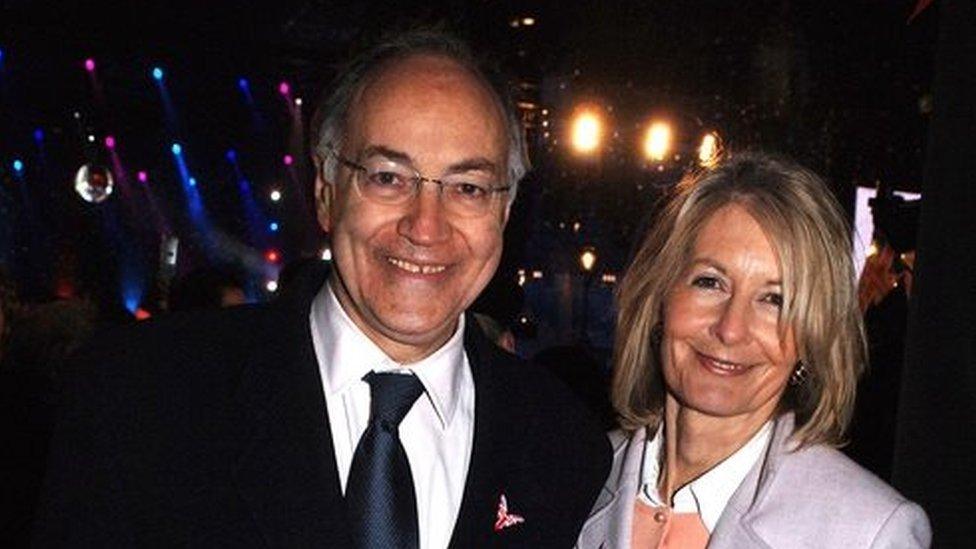
"We are a split house on EU, but - wondrously - no fights, respect the other's view. Let's hope the journos/Westminster do same."
So tweeted novelist Sandra Howard, external, when husband Michael, the former Conservative leader, signed up to the Leave campaign.
But will everybody find it as easy to preserve domestic harmony in the run up to the EU referendum on 23 June?
The truth will out

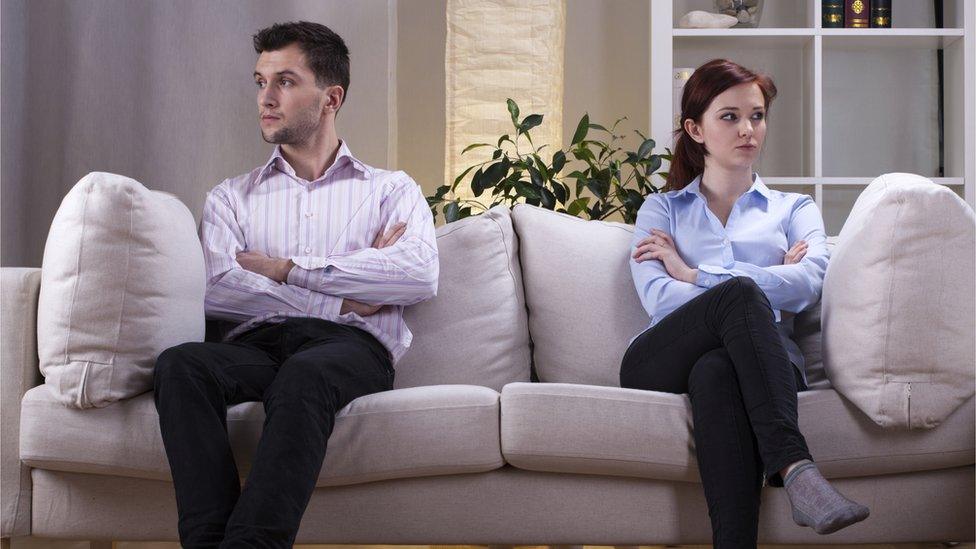
Referendums are strange things. Unlike party politics, where you tend to know where your other half stands, they can throw up surprising opinions and previously buried viewpoints.
How did you live with someone for this long without knowing they were a raving Europhile/Eurosceptic?
But it does not have to hurt

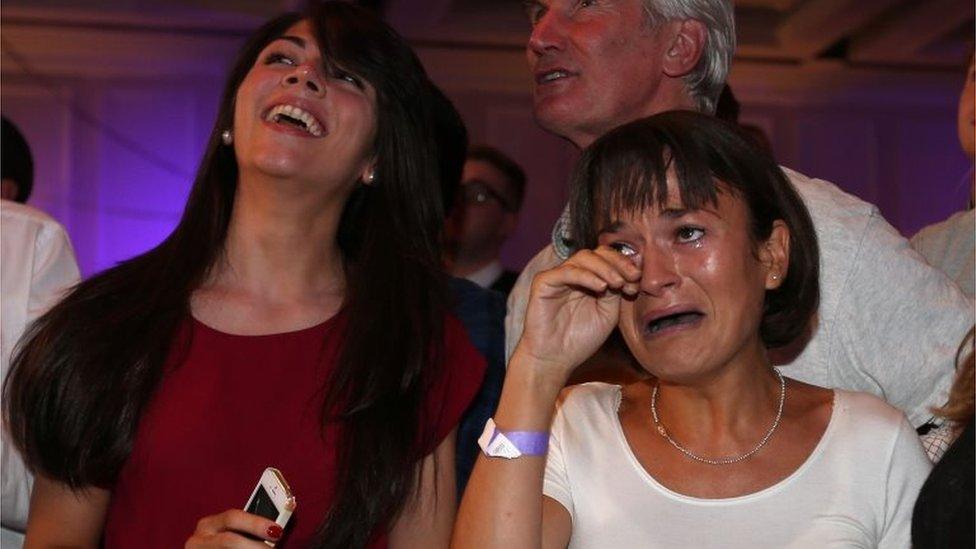
No supporters celebrate the Scottish referendum result
The 2014 Scottish independence referendum was famous for causing family rifts. Stuart Valentine, chief executive of counselling service Relationship Scotland, says some of these wounds have yet to heal.
He does not expect the EU referendum to stir the same passions but, he adds, many of the couples he sees have problems with each other's "world view", particularly if it has changed over time.
It normally surfaces in disagreements over how to bring up the children, says Mr Valentine, but political opinions can be thrown in to the mix too.
"Not belittling someone for holding a different view is really important," he says. "Try to show respect and be civil to each other."
That may be easier said than done, perhaps. Particularly if you have a killer fact that you know will settle the argument once and for all.
Richard and Judy - a divided sofa

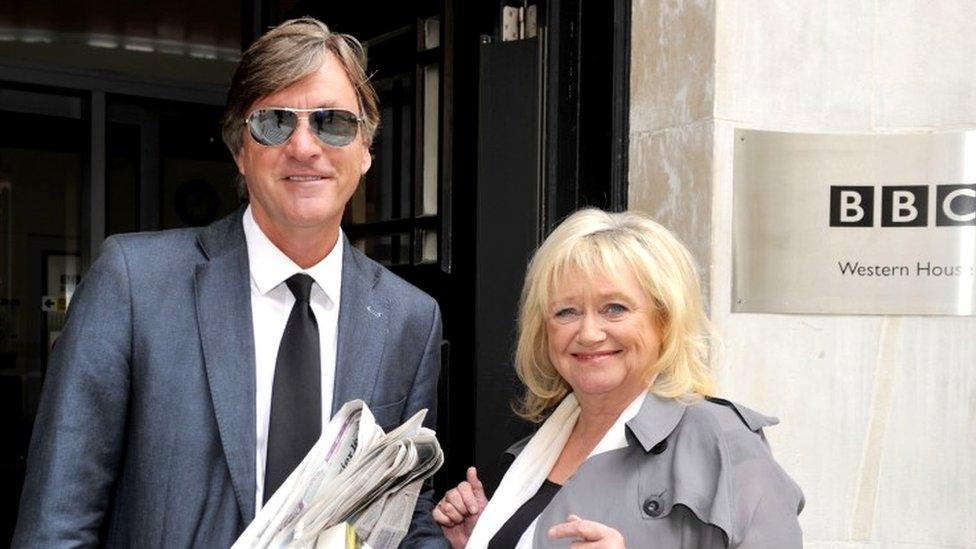
The TV chat duo
But none of this applies to the 20% or more of the population who have yet to make up their mind, including, it turns out, one-time TV power couple Richard and Judy.
"On the whole, Richard leans towards the outies, while I drift towards the innies," wrote Judy Finnigan, in the couple's Daily Express column.
"I don't like the EU but the innate caution that so often goes with motherhood is making me worry about the consequences of leaving in terms of the economy and defence. Richard is braver and more robust than me."
Women shut out of the debate?

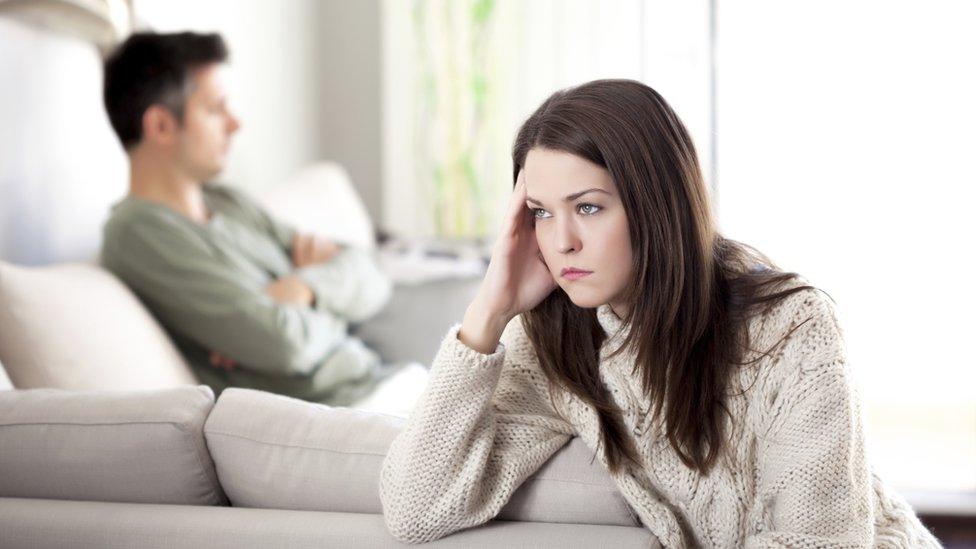
Stock photo models care about the EU too
The idea that men are braver, more decisive characters will not ring true in many households.
But the referendum campaign has been a curiously masculine affair so far, according to Deborah Mattinson, of pollsters Britain Thinks, external, and it is making women angry.
"We know that women are undecided about the EU referendum," she writes.
"They're less likely than men to express certainty on a whole range of issues.
"Crucially though, they're no less likely to vote - in fact there are more women voters than men. So there are millions of women's votes potentially up for grabs in the referendum.
"It's remarkable that the two campaigns aren't making more effort to go after them."
Both sides need to become more "human" and stop bellowing at each other about statistics, advises the former New Labour guru.
It's a family affair

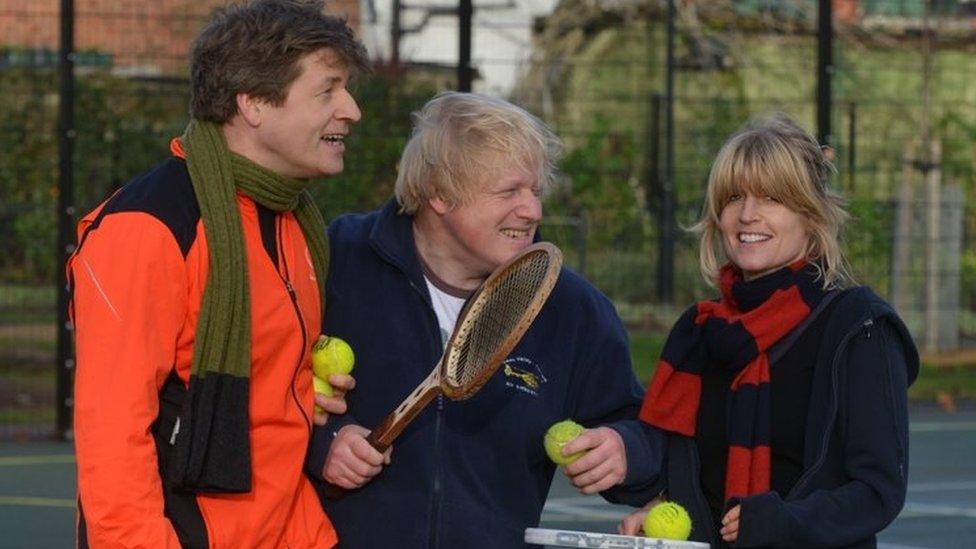
Tennis partners: Boris Johnson with brother Leo and sister Rachel
It's not just couples that find themselves on different sides of the great referendum debate. The fault lines can run through families too.
Just look at the Johnson clan. Boris is an outer. His wife Marina may also be, judging by this article setting out her doubts about the wisdom of remaining in.
But father Stanley, a former member of the European Parliament, and brothers Jo, a Conservative science minister, and Leo, a sustainability expert, are inners. Boris Johnson's mother Charlotte, a painter, was an inner but has been converted to an outer.
We know all this because the London Mayor's sister, Rachel Johnson (an inner), gave us an account of her brother's anguish as he inched towards declaring his position, in a piece for the Daily Mail., external
It has not split the family, she stresses. Despite what everyone assumes.
Have an 'honest debate'

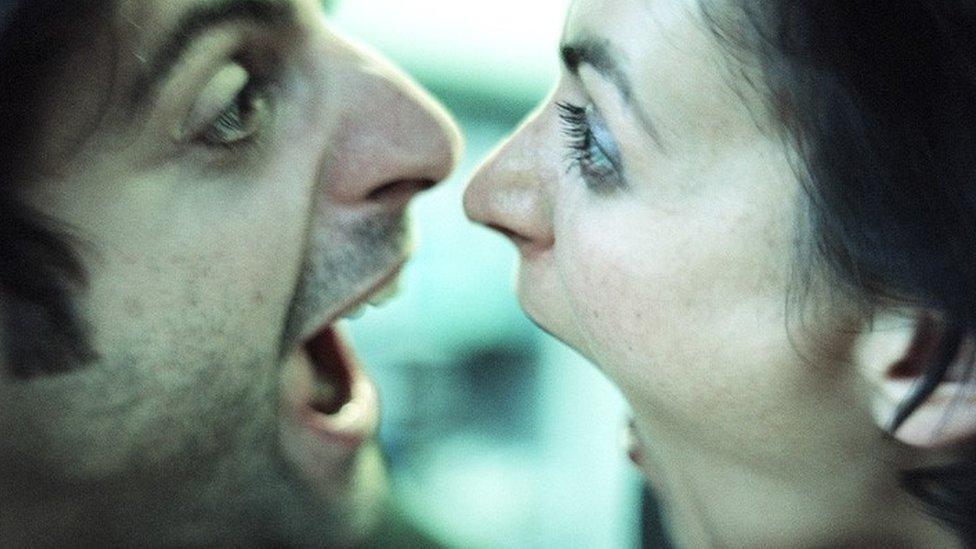
"The Norwegian model is a viable post-Brexit solution!"
Arabella Russell, a counsellor with Relate, advises couples not to shy away from airing their political differences.
"Some people feel quite fearful that their partner might have different views to them," she says, "They think 'these are my values and beliefs and I think my partner should share them'."
In her work with couples, Ms Russell advises them that they do not have to be the same person. She thinks debates about political issues like the EU can be an "opportunity for growth," provided you keep it civil, of course.
"Try to talk very honestly and openly about why you find someone else's opinions difficult," she says.
Or take up table tennis...

We'll leave the final word to Sandra Howard, who takes to the ping pong table when husband Michael refuses to budge on the EU issue.
"Trouble is he always wins - at table tennis..."